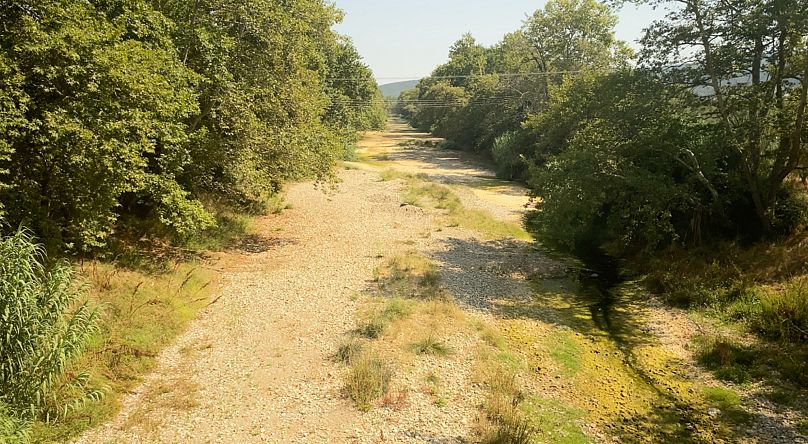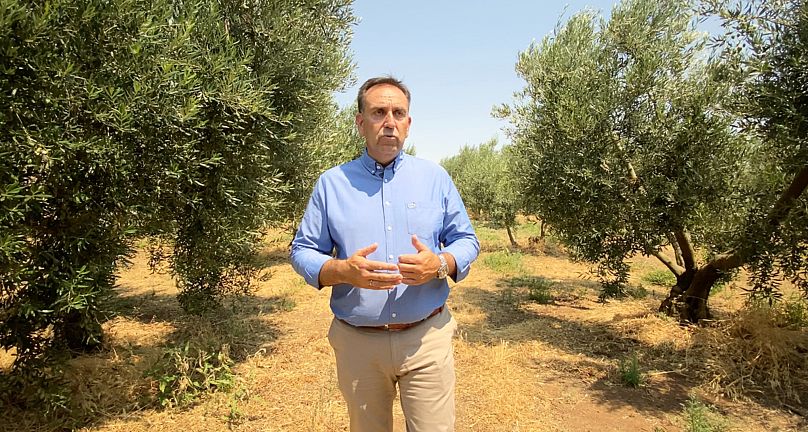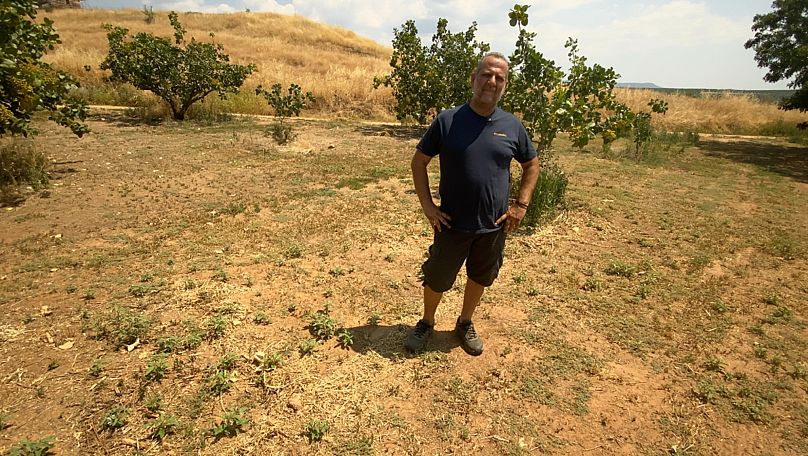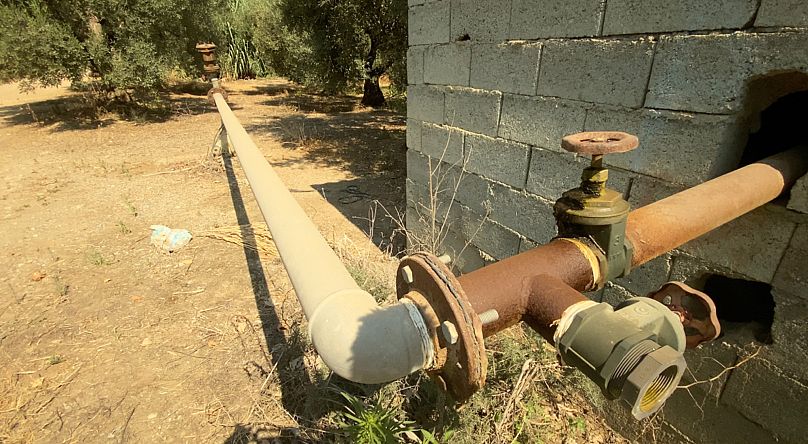Drought and doubts: can the European Union help Greece and other thirsty Member States?
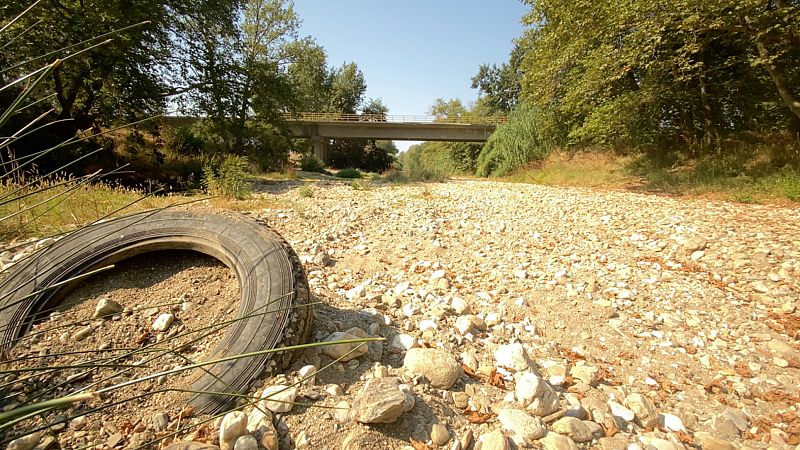
Last year was catastrophic for Giannis´ olive trees. Olives were so small that they were referred to the oil market, much less lucrative, he says. This year seems only slightly better. By the day we film, not a single rain drop has fallen here in two months.
“Due to the climate crisis, this olive variety has faced many serious issues. Mainly due to lack of water, but also due to increased winter temperatures, which don´t provide trees with the hours of cold they need to become fruitful. This results in too many trees not bearing olives.”, Giannis explains.
Air temperature is today 37ºC. Soil moisture scarcely reaches 50%. Giannis has had to invest in a costly irrigation system that, he acknowledges, is also altering the delicate balance of underground aquifers.
20 kms away, another farmer faces the same problem… on a different crop. Dimitris co-owns 630 pistachio trees. Dry years go by, and authorities keep looking away, he claims.
“Nothing has been done in terms of educating farmers in proper water management. We don't even have precision agriculture systems. Everyone makes his own head”, he says. “The state should have already done something so that we could have avoided the problems we´ve already faced. For the last 15 years, bells have been ringing. We Greeks have always learned to live in hope, and water is hope”, Dimitris concludes.
In some regions, agriculture and farming consume up to 90% of water resources with often obsolete and inefficient infrastructures. Other sectors like industry or tourism are equally thirsty.
Under pressure, the Greek government has just pledged urgent investments and a complete reorganization of its different water management agencies. The Water Resilient Strategy, recently published by the European Commission, further advocates for modernising infrastructures through public and private funding, and digital solutions.
But will this be enough?
We bring the question to Elpida Kolokytha, Head of one of the UNESCO Centres for Integrated and Multidisciplinary Water Resources Management. She is also a Professor for Civil Engineering at the Aristotle University of Thessaloniki.
“It is not that we don't have water resources. It means that we are not using them in the proper way. We need to do more because we are living in a new normal. The new normal is that because of climate change, we experience floods and droughts very, very often. So first we need to update our data”, she says.
Are the 2000 EU Water Directive and subsequent Greek legislation enough to provide appropiate solutions?
“We´ve made a lot of progress. Of course, still we have inefficiencies in the governance. In Greece as well”, Elpida Kolokytha replies. “The solution of the problem is a combination of both hydraulic engineering projects together with some soft structural measures: as water conservation or water education campaigns, but also leakage control”.
The EC´s Water Resilient Strategy aims at reducing consumption and improving water efficiency in the EU by 10% by 2030.
Today


